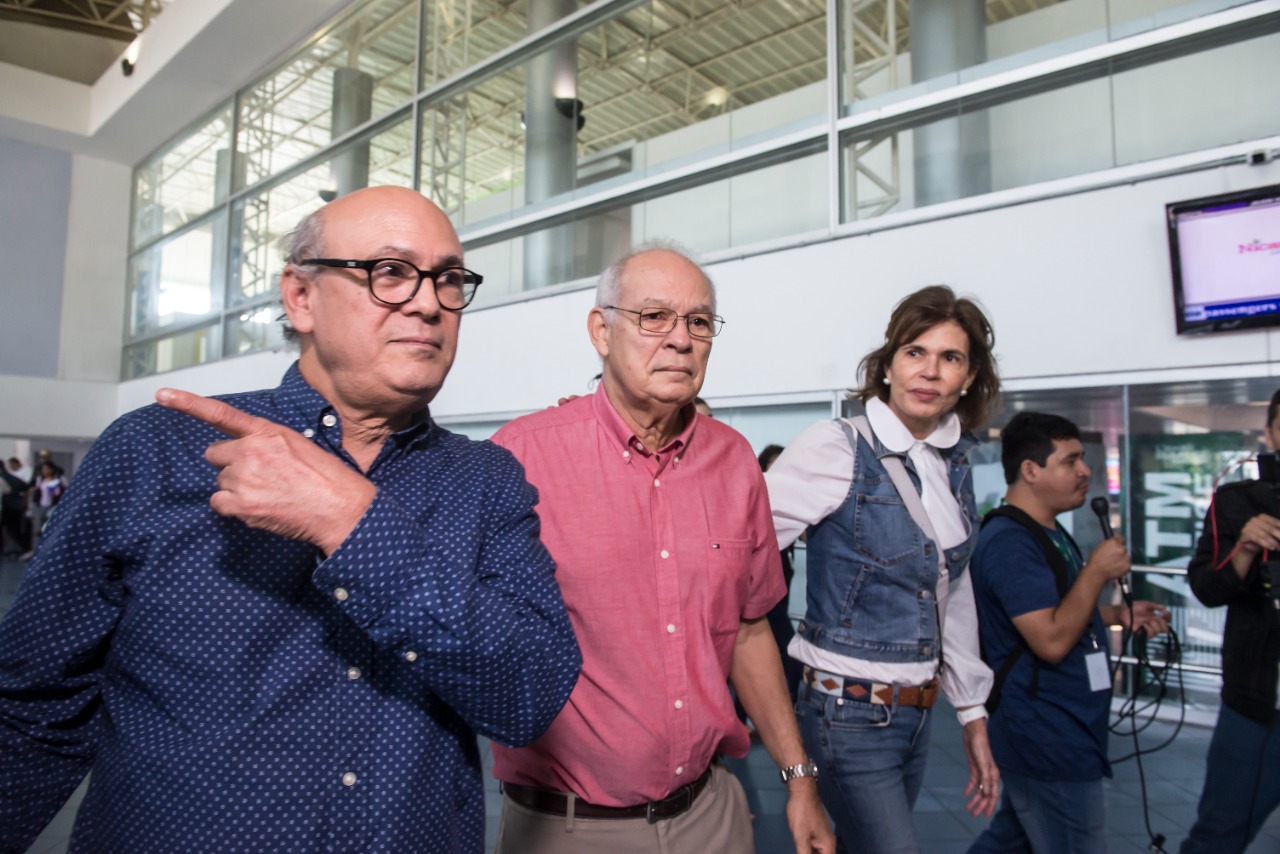Ortega’s regime expands charges against Christiana Chamorro and accuses nine others of various crimes

Ortega’s regime expanded the accusation against Christiana Chamorro, who has been detained at his home in prison since June 2, last year, For crimes of illegal seizure and detention. Nine other people, including Marcos Antonio Fleets Casco and Walter Antonio Gomez Silva, were also charged with money laundering, property and assets, embezzlement and seizure; Arbitrary administration and ideological falsehood. They were due to be imprisoned this week for 90 days.
Chamorro was director of the defunct Violetta Barrios de Chamorro (FVBCH), which Ortega’s regime has been investigating for alleged money, property and asset laundering since May 20.
In addition, journalist Carlos Fernando Chamorro, Christiana’s brother, has been accused of laundering money, property and assets. Misappropriation, Retention and Arbitrary Administration. Carlos Fernando Chamorro went into exile with his wife last June After a search of his home and the “imminent fact” that he was arrested.
On charges of embezzlement, detention and arbitrary administration, he was also charged Pedro Joaquin Chamorro, the brother of Christiana and Carlos Fernando, who has been in prison since June 25.
Prosecutors also charged Emma Marina Lopez and Pedro Vázquez Cortedano “as necessary collaborators in the crime of money laundering.” Vazquez has been a private driver for Christiana Chamorro and has been in prison since June 15.
Ana Elisa Martínez Silva has been charged with seizure, improper detention, abusive management and being a necessary collaborator in the crime of money, property and asset laundering. Guillermo José Medrano and Maria Lourdes Arolega were also charged with appropriating funds and improper detention.
You may be interested in: Journalist Patricia Orozco denounces the eviction and confiscation of her home
The prosecution stated that the judicial authority acknowledged all the accusations and issued a decision to pre-trial detention of the accused who are already under the judicial arrest period of 90 days, and an arrest warrant was issued for those who have not been arrested yet.
Charged 90 days ago is “legal”
A criminal lawyer, who asked not to be summoned for fear of reprisals, explained to LA PRENSA that the formal indictment against Christiana Chamorro and the others was filed 90 days in advance and is legal because the Code of Criminal Procedure Amendment Act stipulates that the maximum term for filing an indictment is 90 days.
The lawyer said: “The law says it can’t exceed 90 days, it can be before that, there is no illegal law, the law speaks for a maximum of 90 days, they’ve done it before and it’s okay.”
With the reform of the law, Article 253 of Law 406 states that “the judicial authority will determine by order the source of the request and will expressly indicate the reasonable time period for the supplementary investigation, which may be not less than 15 days and not more than 90 days, The judicial authority takes into account the seriousness of the truth, the complexity of the investigation, the multiplicity of the victims, the accused or the behavior, when the investigation relates to crimes related to organized crime, or to crimes of social and national importance. importance, and any other information or evidence that helps prove the origin of the request.”
After the official accusation, according to the lawyer, what continues now is the investigation of a preliminary hearing in the case of detained and arrested citizens, a national arrest warrant. And in the particular case of Christiana Chamorro, who is still under house arrest, the lawyer indicated that she “could be transferred” to the new Chiboti centre.
34 detainees in the past three months
The arrests of Christiana Chamorro, Marcos Antonio Fleets Casco, Walter Antonio Gomez Silva, Pedro Joaquín Chamorro and Pedro Vásquez Cortedano, in addition to twenty other detainees, were classified by their relatives and human rights organizations as kidnapping because they were not allowed to do so. Talk to them or have access to a defense attorney since their arrest; Nor to be able to verify their presence in the Legal Aid Directorate. Family members denounced not providing them with information about their relatives and not allowing them to visit them or bring food.
The arrests of 34 Nicaraguans, including opposition leaders and seven presidential candidates, by Ortega’s regime were criticized by the international community and led to the severing of diplomatic relations of some countries with Nicaragua, less than three months after the presidential elections.




:quality(85)/cloudfront-us-east-1.images.arcpublishing.com/infobae/P3M34YHXTVFZTCYTQQSSPRA4ZM)